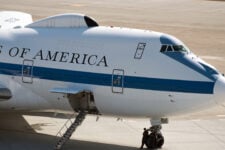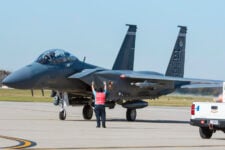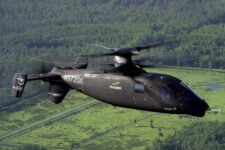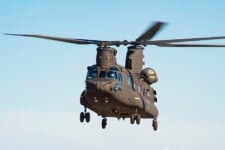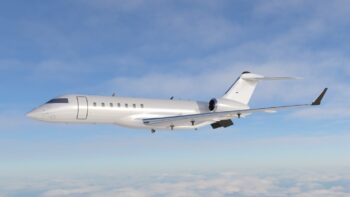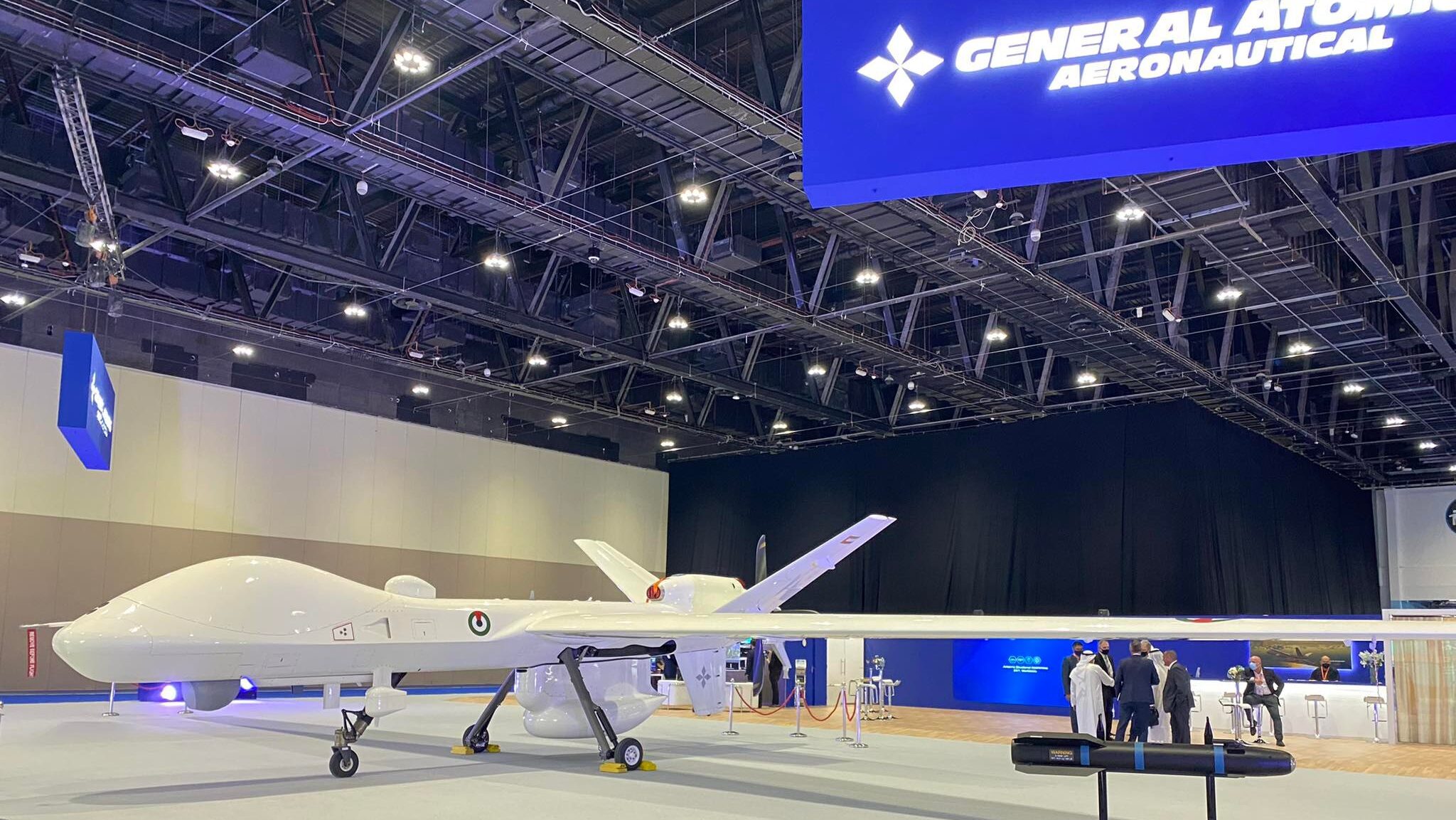
MQ-9B SeaGuardian with Emirati flag, at General Atomics booth at UMEX 2022. (Agnes Helou / Breaking Defense)
UMEX 2024 — After a years-long delay, a deal to export 18 MQ-9B SeaGuardian unmanned aerial vehicles to the United Arab Emirates is back on track, the president of General Atomics Aeronautical Systems (GA-ASI) told Breaking Defense, now that he said progress has been made in separating the MQ-9 deal from the larger — and more controversial — F-35 procurement saga.
“That was a big part of the delay … some of which couldn’t get solved, and we were lucky enough to break away and move forward,” David Alexander, president of GA-ASI, said in an interview at the Unmanned Systems Exhibition, known as UMEX 2024, in Abu Dhabi. “So we’ve been quite successful with our government counterparts to separate [the MQ-9 and F-35 issues] and move forward.”
Alexander said that GA-ASI is now preparing the details concerning platform configurations and final estimates for the Emirati Air Force, and that the US government is on board. He said he expects a formal letter of request from the UAE to be resubmitted between three and six months from now.
A US State Department official declined to answer specific questions about the status of the MQ-9B deal, but told Breaking Defense that the “proposed sale of F-35 aircraft, MQ-9 Unmanned Aerial Vehicles, and munitions remains on the table.
“We have a continuing and robust dialogue with the UAE on these sales,” said the official, speaking on the condition of anonymity. “We remain committed to them, even as we continue consultations to ensure that we have a clear, mutual understanding with respect to Emirati obligations and actions before, during, and after delivery.”
RELATED: Potential F-35, Reaper deal with UAE not completely dead, senior US official says
A Pentagon spokesperson did not respond to Breaking Defense’s request for comment as of publication.
A renewed procurement would have a bureaucratic head start, as back in 2020 the US approved and notified Congress of the potential MQ-9 sale, putting the estimated price tag at just under $3 billion at the time.
Months later it was revealed the UAE had struck a $23.3 billion deal to procure 50 F-35 fighter jets along with the SeaGuardians. But the combination deal was halted over US concerns about the Emirates’ use of Chinese Huawei network technology and a perceived threat to the F-35.
Alexander told Breaking Defense that the Chinese networking tech doesn’t affect the MQ-9B since it is controlled by satellite links.
In November last year, Breaking Defense reported that General Atomics was planning to integrate Emirati EDGE Group missiles on the MQ-9B SkyGuardian platform.
“This will be the first indigenous weapons here in the region integrated on a US platform. I think that our government trusts the Emiratis enough to have allowed that export to happen,” Alexander said.
The United Kingdom and the UAE are the only two countries that have been approved from the US government to integrate their indigenous weapons on the MQ-9.
If the MQ-9 deal is finalized, Alexander said that General Atomics will build the platforms in the US, and the missile integration and testing is expected to take place in the UAE.
Ryan Bohl, a senior Middle East and North Africa analyst at the RANE Network, said the MQ-9 is “key” to the UAE’s “drone strategy.”
“The UAE has seen drone warfare evolve and develop across the region and realizes that a system like the MQ-9 would be a boost for that strategy,” he said.
As for other potential regional customers, Alexander said there is interest, but no deals yet. Specifically about the potential to export GA’s defense products to Saudi Arabia, he said, “That was pretty hard in the past but it’s getting easier, I think. So I would say within a year, maybe something could happen.”

